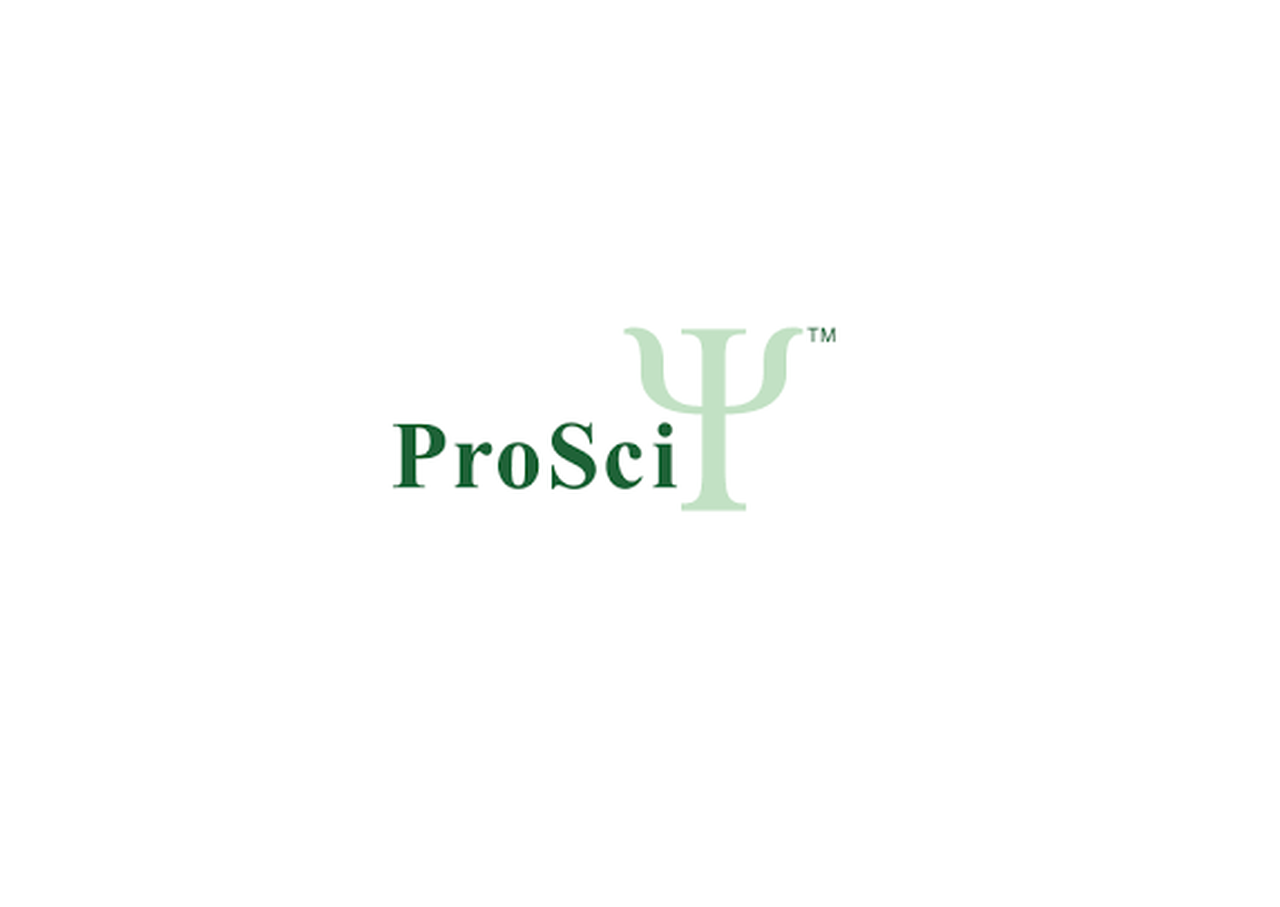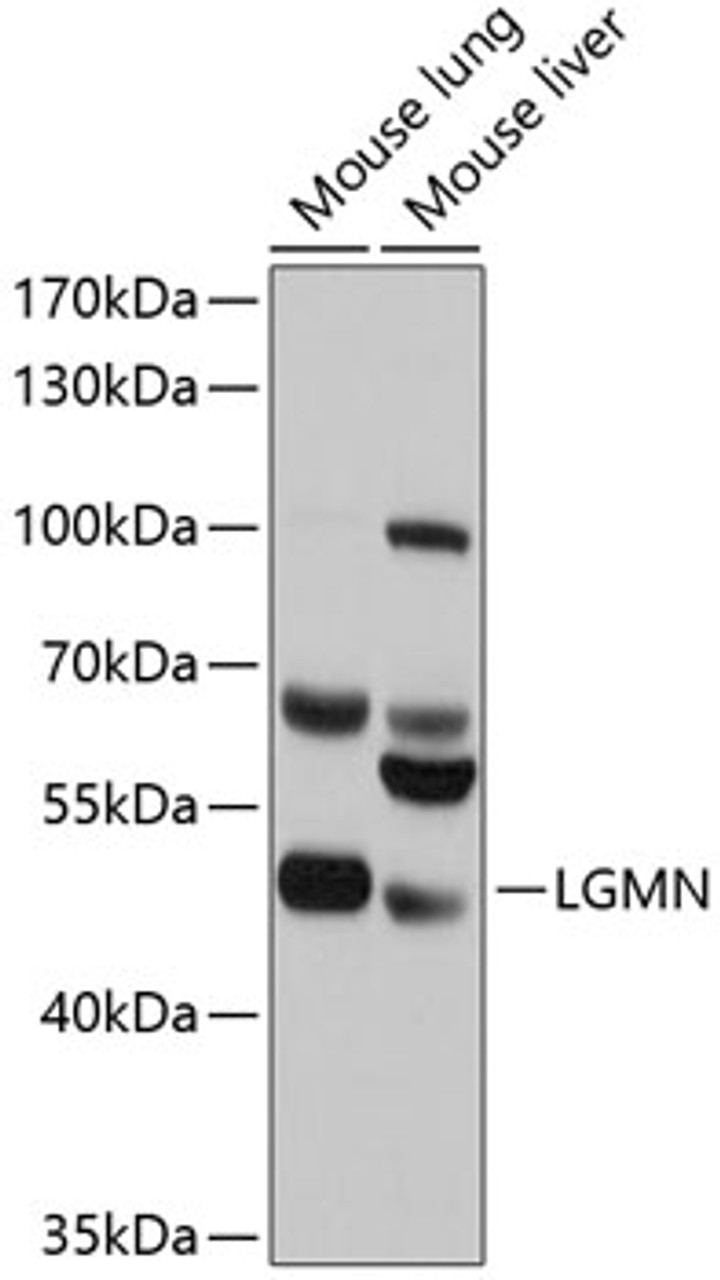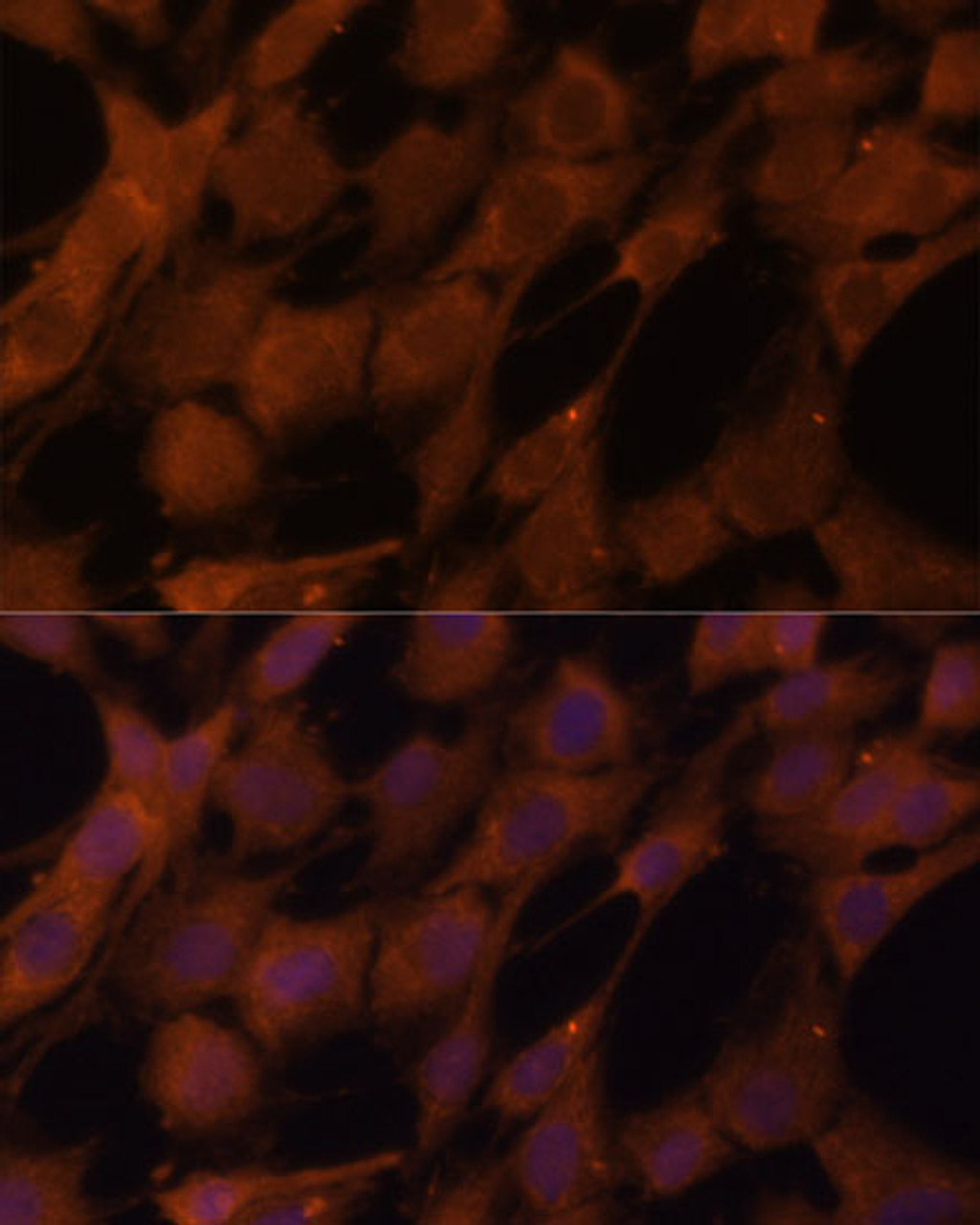Product Description
LGMN Antibody | 13-728 | ProSci
Host: Rabbit
Reactivity: Human, Mouse, Rat
Homology: N/A
Immunogen: Recombinant fusion protein containing a sequence corresponding to amino acids 18-323 of human LGMN (NP_001008530.1) .
Research Area: Cancer, Cell Cycle, Immunology, Signal Transduction
Tested Application: WB, IF
Application: WB: 1:1000 - 1:2000
IF: 1:50 - 1:200
Specificiy: N/A
Positive Control 1: Mouse lung
Positive Control 2: Mouse liver
Positive Control 3: N/A
Positive Control 4: N/A
Positive Control 5: N/A
Positive Control 6: N/A
Molecular Weight: Observed: 54kDa
Validation: N/A
Isoform: N/A
Purification: Affinity purification
Clonality: Polyclonal
Clone: N/A
Isotype: IgG
Conjugate: Unconjugated
Physical State: Liquid
Buffer: PBS with 0.02% sodium azide, 50% glycerol, pH7.3.
Concentration: N/A
Storage Condition: Store at -20˚C. Avoid freeze / thaw cycles.
Alternate Name: Legumain, Asparaginyl endopeptidase, Protease, cysteine 1, LGMN, PRSC1
User Note: Optimal dilutions for each application to be determined by the researcher.
BACKGROUND: This gene encodes a cysteine protease that has a strict specificity for hydrolysis of asparaginyl bonds. This enzyme may be involved in the processing of bacterial peptides and endogenous proteins for MHC class II presentation in the lysosomal/endosomal systems. Enzyme activation is triggered by acidic pH and appears to be autocatalytic. Protein expression occurs after monocytes differentiate into dendritic cells. A fully mature, active enzyme is produced following lipopolysaccharide expression in mature dendritic cells. Overexpression of this gene may be associated with the majority of solid tumor types. This gene has a pseudogene on chromosome 13. Several alternatively spliced transcript variants have been described, but the biological validity of only two has been determined. These two variants encode the same isoform.
 Euro
Euro
 USD
USD
 British Pound
British Pound
 NULL
NULL












